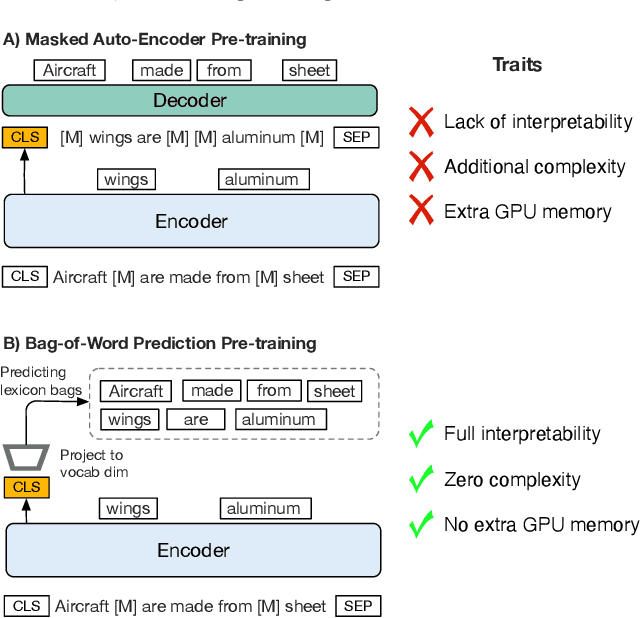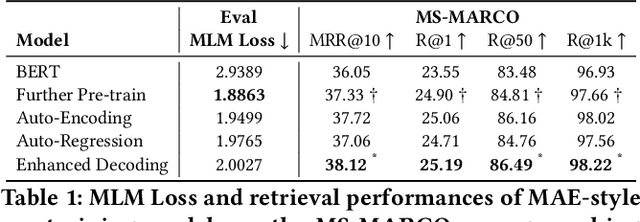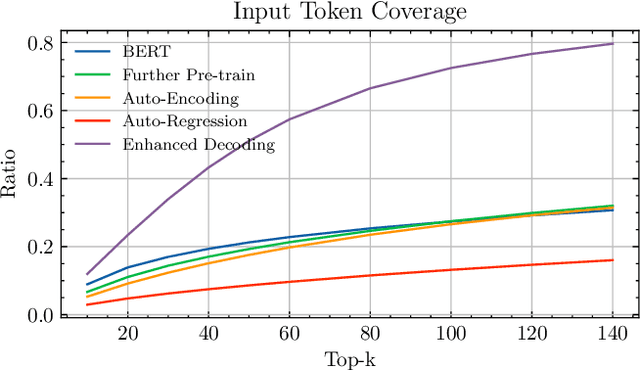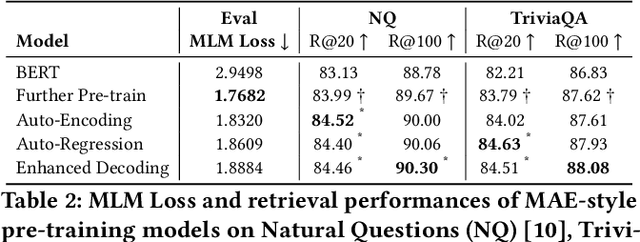Drop your Decoder: Pre-training with Bag-of-Word Prediction for Dense Passage Retrieval
Paper and Code
Jan 20, 2024



Masked auto-encoder pre-training has emerged as a prevalent technique for initializing and enhancing dense retrieval systems. It generally utilizes additional Transformer decoder blocks to provide sustainable supervision signals and compress contextual information into dense representations. However, the underlying reasons for the effectiveness of such a pre-training technique remain unclear. The usage of additional Transformer-based decoders also incurs significant computational costs. In this study, we aim to shed light on this issue by revealing that masked auto-encoder (MAE) pre-training with enhanced decoding significantly improves the term coverage of input tokens in dense representations, compared to vanilla BERT checkpoints. Building upon this observation, we propose a modification to the traditional MAE by replacing the decoder of a masked auto-encoder with a completely simplified Bag-of-Word prediction task. This modification enables the efficient compression of lexical signals into dense representations through unsupervised pre-training. Remarkably, our proposed method achieves state-of-the-art retrieval performance on several large-scale retrieval benchmarks without requiring any additional parameters, which provides a 67% training speed-up compared to standard masked auto-encoder pre-training with enhanced decoding.
 Add to Chrome
Add to Chrome Add to Firefox
Add to Firefox Add to Edge
Add to Edge